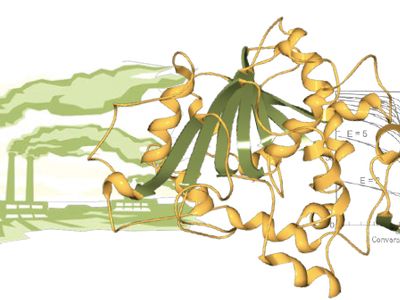The course comprises approximately 105 full-time study hours, corresponding to 4,0 ECTS credits. Lectures and exercises are jointly read together with BB2460, but doctoral students perform an independent, research-based theoretical project on biocatalysis, which provides progression from the second to the third cycle.
The project includes the independent design of a theoretical experiment including the choice of appropriate method and model for data processing and analysis, and to communicate the results in written form.
The course provides an overview of the research area Biocatalysis, with special emphasis on the application of enzymes for environmentally sustainable production of chemical products.
Relevant enzymes and their reaction mechanisms are discussed. Furthermore, central experimental techniques for the use of enzymes in organic solvents are discussed, as well as methods for optimizing stereochemical yields with industrial processes as examples.
Furthermore, the course provides knowledge about general and current techniques for design and modification of enzymes, for example directed evolution, for application in biocatalysis. The student carries out a project where a theoretical experiment is designed which includes, among other things, to select and justify choice of methods for experiment execution and analysis of results.
After completion of the course the student shall be able to
- demonstrate in-depth knowledge and analytical skills in the field of biocatalysis
- demonstrate good ability to explain and analyze complex concepts in biocatalysis based on relevant research literature, and in a pedagogical way communicate the knowledge in writing
- formulate and discuss in writing how biocatalysis can be applied in industry to create more environmentally sustainable biotechnological and chemical processes and, to reflect on sustainable societal development
